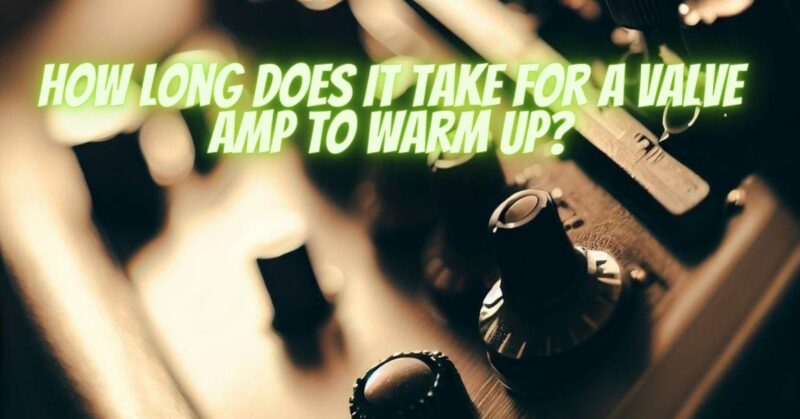Valve amps, also known as tube amps, are a type of electronic amplifier that uses vacuum tubes to amplify audio signals. Vacuum tubes are heat-sensitive devices, and they need time to warm up before they can produce their best sound.
The amount of time it takes for a valve amp to warm up can vary depending on the type of amp, the quality of the tubes, and the ambient temperature. However, most valve amps will need at least 15-30 minutes to warm up before they sound their best.
Here are some factors that can affect the warm-up time of a valve amp:
- The type of amp. Some amps, such as single-ended triode amps, are known for having a longer warm-up period than others.
- The quality of the tubes. Higher-quality tubes will typically warm up more quickly than lower-quality tubes.
- The ambient temperature. If the ambient temperature is cold, the amp will take longer to warm up.
- The condition of the tubes. If the tubes are old or damaged, they may take longer to warm up.
If you are not sure how long it will take for your valve amp to warm up, it is always best to consult the manufacturer’s instructions.
Here are some tips for warming up your valve amp:
- Turn the amp on and allow it to sit for a few minutes before playing it.
- Play the amp at a low volume.
- Avoid overloading the amp.
If you are patient and give your amp enough time to warm up, you will be rewarded with a richer, fuller sound.
Here are some additional things to keep in mind about valve amps and warm-up:
- Do not turn off the amp immediately after playing. Allow the amp to cool down for a few minutes before turning it off. This will help prevent the tubes from overheating.
- Avoid using the amp in a hot environment. The heat can damage the tubes and shorten their lifespan.
- Have the tubes replaced regularly. The lifespan of a tube is typically around 10,000 hours. Once the tubes start to age, they will not produce as good of a sound and may even fail.
By following these tips, you can help ensure that your valve amp will sound its best for many years to come.


